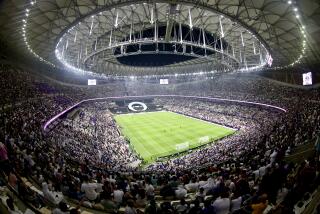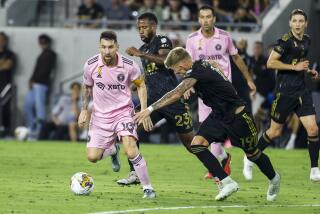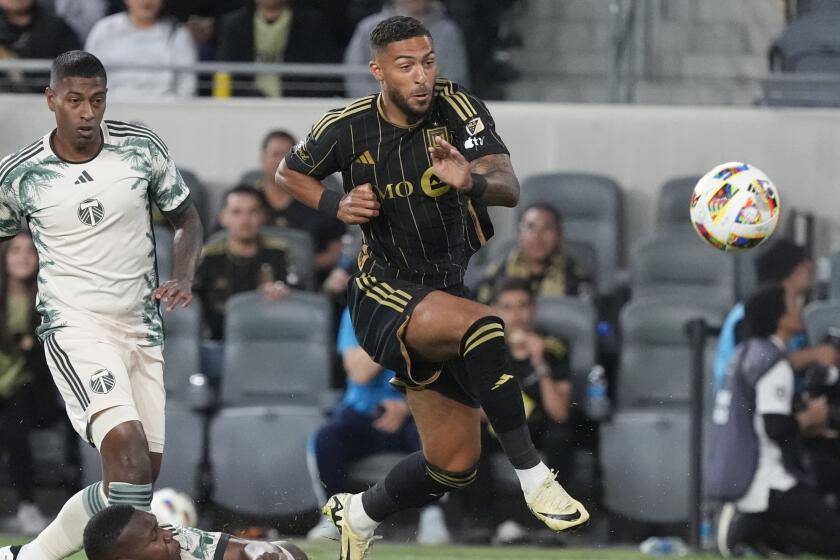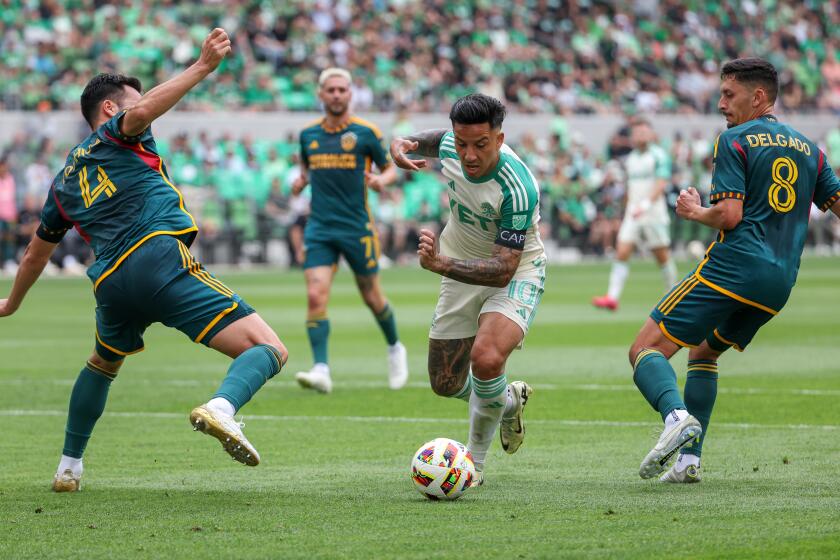Spain’s pain gone after 44 years
Liverpool’s Fernando Torres scored the most unforgettable goal of his career on Sunday, a goal that ended 44 years of frustration for Spain and a goal that was like a dagger through the hearts of Germany’s players and fans.
Soccer’s European Championship finale was a tense and nail-biting affair, but after the final whistle, after Spanish goalkeeper and captain Iker Casillas had lifted the trophy aloft at Ernst Happel Stadium in Vienna, the belief was that the best team in the 16-nation tournament had won.
Spain’s 1-0 victory meant that it had gone through the tournament undefeated and had not given up a goal in the quarterfinals, semifinals or final, a triumph not only for a defense marshaled by shaggy-haired Barcelona veteran Carles Puyol but also for the tactical genius and belief of Coach Luis Aragones, who turns 70 in July.
It was the second European Championship won by Spain, the last one coming in 1964, and it set off wild scenes of celebration in Madrid, Barcelona, Valencia and every other city and town as all of Spain seemed awash in the country’s red and gold colors.
In Vienna, meanwhile, Spain’s King Juan Carlos and Queen Sofia were among the 51,428 on hand and personally congratulated Casillas and the rest of Spain’s delirious cast of characters.
“We have won in a brilliant way,” Aragones said of Spain, which outshot Germany, 13-4, including 7-1 in shots on target.
Germany came into the Euro 2008 final as a three-time winner and as the tournament favorite. But once Torres had put the Spanish ahead, the Germans uncharacteristically failed to produce the sort of comeback for which they are famous.
Torres, 24, was employed as a solitary striker by Aragones, but even though he was alone up front, he caused the German defense all sorts of problems.
He was unlucky not to score in the 22nd minute when his thunderous downward header flashed past goalkeeper Jens Lehmann only to rebound off the foot of the left post.
Eleven minutes later, and through sheer persistence and determination, Torres got his reward. A superb through ball from Barcelona’s Xavi sent Torres up against German left back Philipp Lahm. The Spanish striker forced his way past Lahm and, just as Lehmann moved to block his shot, Torres lifted the ball over the sliding goalkeeper and watched as it went in at the left post.
It was a goal worthy of a championship, but Spain then set about doing the hard work of keeping Germany at bay for the next hour. That it succeeded was a tribute to every player wearing the red shirt of Spain.
Dubbed “El Nino” when he was made captain of Atletico Madrid while still only 19, Torres has scored 17 goals in 53 games for Spain. He joined Liverpool in England’s Premier League last year for $47 million and scored 33 goals in his rookie season.
Now, he is a European champion.
“This is the most important title after the World Cup,” Torres said. “It is a dream come true. It is our first title, and we hope it is the first of many. We have to be ambitious because we still have the World Cup to come.
“At last, justice has been done and the team that played the best football won the tournament. This has been a great victory for the whole team and all of Spain.”
The win extended Spain’s unbeaten streak to 22 games and meant that at Euro 2008 Aragones’ team had overcome Germany, world champion Italy (on penalty kicks) defending champion Greece, Sweden and Russia (twice).
Germany was undone by Spain’s ability to retain possession, its skill at moving the ball, at switching the point of attack, and at keeping the German defense constantly off balance.
At the other end of the field, Casillas and the Spanish defenders were able to handle anything thrown at them by Germany.
As the minutes ticked away and Germany struggled to find a way through, Coach Joachim “Jogi” Loew brought Kevin Kuranyi and Mario Gomez into the match, but the two strikers met the same brick wall that had denied Miroslav Klose, Michael Ballack, Bastian Schweinsteiger, Lukas Podolski and the rest of the German attack.
In the end, Ballack, who had been a doubtful starter because of a calf strain, had to admit defeat. “It is very sad to lose when one has come such a long way,” he said.
--
Jones reported from Los Angeles.






